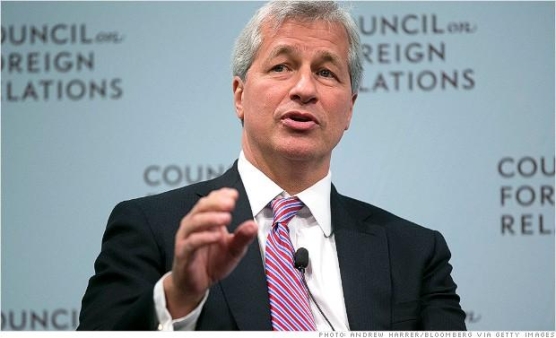
What JP Morgan's Jamie Dimon means for the Asian banking sector
By Paul OdoomLike or not, Jamie Dimon, JP Morgan Chase’s (NYSE: JPM) iconic Chairman & CEO, survived a referendum vote of his leadership over his bank. On May 21, the combative leader of the bank just scored a resounding victory. In what has to be considered something of a shocker, just 32.2 percent of shareholders voted in favor of the split, compared with 40 percent last year.
Heading into the annual shareholder meeting, the prevailing feeling was that Dimon would prevail but that the vote percentage would be higher than last year's 40 percent but less than the 50 percent necessary for passage. Other people probably held similar predictions.
The big victory at the meeting in Tampa may reflect the intense lobbying the board of directors did on Dimon's behalf, the veiled threat that he might quit if he lost, and the strong earnings record the bank has achieved. All that weighed in his favor. It's quite possible that the board cut some informal deals as well, promising other, undisclosed corporate governance changes. As a result, it means that the biggest bank in the United States, with more than $2 trillion in assets, will enjoyed familiar continuity within their C-Suite. But, what does this mean for the world’s largest banking sector, the Asian Banking Sector?
J.P. Morgan Chase has enjoyed 140 years of success in Asia Pacific. Their presence in the region dates back to 1872, when we opened our first office in Sydney. Since then, J.P. Morgan has expanded its network to more than 35 offices in 16 countries with their regional headquarters in Hong Kong.
The Singapore office has become a hub for J.P. Morgan's South East Asian operations. It is also an Asia Pacific head office for a number of business lines and corporate support functions. The Singapore office services a wide range of financial institutions, MNCs, corporations and high-net-worth individuals. Since the firm commenced operations in Singapore more than 40 years ago, the office has developed the capacity to offer a full suite of products and services across industry sectors and asset classes.
Back in April of 2012, Jeff Urwin has been appointed as the head of J.P. Morgan’s operations in the Asia-Pacific region, succeeding Gaby A. Abdelnour, who announced in March that he was leaving the firm. Mr. Urwin was one of JPM’s preeminent executives and a strategic growth asset of the bank’s global profile.
Mr. Urwin will continue to head the global investment banking coverage, capital markets, and mergers and acquisitions divisions. He is to move from New York to Hong Kong this month, and will be responsible for the bank’s overall activities in Asia, along with his other global banking responsibilities, according to a company statement
His appointment comes as the bank looks to expand its operations in the fast-growing emerging economies in Asia. Over the last six years, the firm said its Asia-Pacific business had doubled in size and tripled its net profit.
Dimon’s global oversight isn’t without its criticisms, though. Dimon's many defenders note that he steered the bank safely through the financial crisis, opened up to shareholders about the bank's $6 billion "London Whale" trading loss, and guided the bank to record profits despite that loss.
But then again, he also let the bank get itself into those London Whale trades in the first place, taking unnecessary risks to keep boosting profits. He has been at the helm as the bank has wandered into one regulatory rat's nest after another and as the Office of the Comptroller of the Currency cut its rating of the bank's management to "needs improvement."
Despite the London calamity, JPM’s chief is the class of Wall St. banking leadership. He successfully led the bank through the 2008 financial crisis with style & grace, even improving the bank’s profitability. Last Tuesday’s shareholder vote to keep him as the complete leader of the bank is also the best vote for the Asia-Pacific banking sector.






















 Advertise
Advertise








